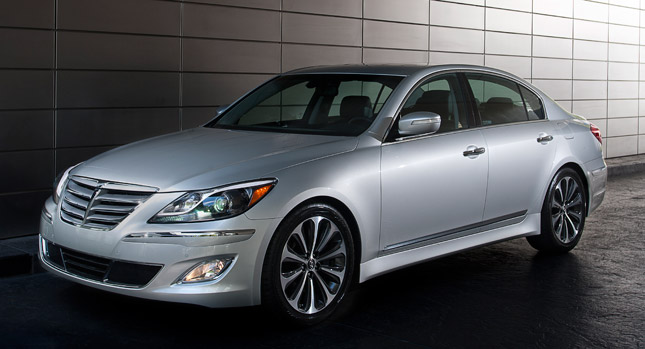Korean carmakers have made impressive progress in the last decade. From below-par products that were chosen by people who wanted a new car and couldn’t afford anything pricier, Hyundai and Kia models quickly become competitive in most segments.
And we’re not the only ones who say this; even VW’s boss is wondering why his company’s products can’t match Hyundai’s quality in certain areas.
No matter how good a car is, though, preconceptions die hard. For certain people, the badge on the hood says a lot about not only the car, but themselves as well; no quality survey, iPad manual, road-test review or 10-speed auto transmission is not going to change that in the foreseeable future
If you can’t change the people, you can surely change the badge, though. Toyota, Nissan and Honda have gone down that road by launching premium divisions like Lexus, Infiniti and Acura. This has worked more than well, at least in the U.S.
And this is the dilemma Hyundai is facing right now, according to a report from Autonews. If some buyers choose to ignore its upmarket offerings like the Genesis or the Equus because they sport a round “H” badge instead of an “L”, a three-pointed star or a white and blue roundel, why not launch a new brand?
Dave Zuchowski, executive vice president of sales for Hyundai Motor America, acknowledges the issue: “There’s a conversation going on within the company that says, ‘Does having the Hyundai badge on the premium vehicles sell more units, or does it restrict us from selling more?’.”
The question becomes difficult to answer because Hyundai sales are on the rise anyway: in the first year of production, Hyundai sold 3,193 units of its US$60,000 Equus sedan. That’s 893 more than the company expected.
On the other hand, Zuckowski admits that even though Genesis sedan and Coupe sales have increased by 13 percent in 2011, many buyers have chosen to replace the Hyundai logo with the optional Genesis winged badge.
If it gets the green light, the new division will include rear-wheel drive saloons and coupes and adopt the Genesis brand name and an alphanumeric naming system for its models.
Contrary to Lexus and Infiniti, there would be no different dealership network and the new sub-brand would be sold through Hyundai’s existing network.
While Zuchowski noted that the company hasn’t made a final decision yet, if it gets the go ahead, the launch could coincide with the new Genesis and Equus sedans, which are expected next year as 2014 models.
Mind you, creating a luxury sub-brand is not necessarily a recipe for success. In 1992, Mazda planned to launch the Amati luxury division in response to Acura, Lexus and Infiniti. The plan never took off, and the Xedos name that was applied to the European Mazda 6 in 1992 didn’t make any difference, so it was ditched five years later.
And, of course, we all know what happened, at a more upscale level, to a certain German premium manufacturer when it decided to challenge Bentley and Rolls-Royce…






















